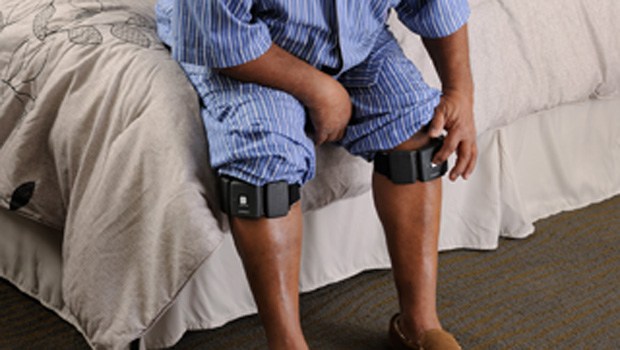Is Carb Restriction a Viable Choice for Reversal of Type 2 Diabetes?
A low-carb/higher fat diet seems counterintuitive if you are struggling with insulin resistance and weight-loss, but research continues to prove otherwise

Restricting carbohydrates might be an ideal treatment path, according to recent research presented on insulin resistance, diabetes, and cardiovascular disease.
“Nutritional ketosis supports diabetes reversal by reducing overall insulin resistance while providing an alternative fuel to glucose with favorable signaling properties,” said Sarah Hallberg, DO from Indiana University regarding her study “Indiana Type 2 Diabetes Reversal Trial.”
The 5-year study (which is currently in year 4) focused on low-carbohydrate diets — which included but didn’t require diets low enough in carbohydrates to induce nutritional ketosis.
Indiana University enrolled 465 patients with type 2 diabetes, managed by Hallberg.
“The ketogenic diet is not a fad diet, it’s what we used to treat people with before the advent of insulin,” said Hallberg, who also serves as the medical director and founder of a supervised weight-loss program.
The standards within this research for low-carb and ketogenic diets were as follows:
Ketogenic:
- Fewer than 50 grams of carbohydrates per day
- Fewer than 10 percent of your total calories consumed from carbohydrates
Low-carbohydrate:
- 51 to 130 grams of carbohydrates per day
- Fewer than 25 percent of your total calories consumed from carbohydrates
Consuming more than 25 percent of your total calories as carbs is deemed not low-carb
“When we’re talking about a total carbohydrate intake per day of under 50 grams, you can get a lot of vegetables and nuts in,” she said.
I like to tell my patients they’re not eating GPS: no grains, no potatoes, and no sugar.”
Hallberg has been a longtime advocate for low-carbohydrate diets as a treatment option for patients with type 2 diabetes.
Insulin has been wonderful. It’s saved so many people with type 1 diabetes but we have misused insulin in type 2 diabetes.”
We used to counsel people about the food that they’re taking in to control their blood sugar, whereas today we just put them on medications, including insulin.”
Her statement on using insulin to treat type 2 diabetes may raise some eyebrows considering research from the American Diabetes Association has found that nearly 60 percent of patients may actually struggle with “gradual beta-cell dysfunction.”
This means their pancreas is gradually producing fewer healthy beta-cells, which are responsible for the production of insulin.
The remaining 40 percent are thought to be able to reverse the condition through lifestyle changes including nutrition, exercise, weight-loss, quitting smoking, and reducing their alcohol consumption.
However, that doesn’t mean a low-carbohydrate diet wouldn’t benefit those struggling with “gradual beta-cell dysfunction.” By reducing carbohydrate intake, one could assume that you then reduce the demand for insulin which of course reduces the demand for beta-cell function.
The American Diabetes Association has finally begun to support low-carbohydrate diets for both type 1 and type 2 patient populations.
When comparing the benefits of a low-carbohydrate or ketogenic diet to other approaches like the Mediterranean diet, the DASH diet (designed for high blood pressure), and a plant-based (vegan) diet, Hallberg says the low-carb approach provided the most consistent results and benefits for patients with diabetes.
We found a wide variation in the evidence for each eating pattern, but the low-carb eating pattern for diabetes has so much more evidence than any of the other eating patterns.”
Hallberg refers to previous research, which she says found that after only a few weeks on low-carbohydrate diets, the benefits for the small study of 10 patients were noticeably and quickly obvious.
After 14 days, A1c levels dropped from an average of 7.3 percent to 6.8 percent.
- “The levels came down very fast,” said Dr. Hallberg, who was not involved with the study.
- This is an important part of the intervention because when you get a patient who’s tried everything, who’s injecting hundreds of units of insulin every day, you can make a huge difference in the first couple of weeks.
- It is not unusual for us to pull patients off of 200+ units of insulin. This is as motivating as all get out. It also affects their pocketbook right away.
- This is one of the reasons our patients are able to sustain a ketogenic diet along with support: early motivation and satisfaction.”
A patient with type 2 diabetes taking more than 200 units of insulin per day is considered extremely insulin resistant. Getting results quickly that enables them to reduce insulin doses also offers tremendous relief to the amount of money they are spending on insulin every month.
Another study from 2008, focusing on a ketogenic diet of fewer than 20 grams of carbohydrates per day followed patients for 24 weeks, reporting an average A1c improvement of 8.8 percent down to 7.3 percent.
95 percent of the patients in the ketogenic study reduced or completely eliminated their medication dosages, while only 62 percent of the patients following the Mediterranean diet saw such dramatic results.
In Hallberg’s current study, 91 percent of the patients have reduced or altogether eliminated their insulin dose.
- “Medication reduction was across the board,” said Hallberg.
- This is huge from a cost-savings and a patient-satisfaction standpoint.
- We were improving A1C levels in patients who have had diabetes for an average of over 8 years while we were getting off medication, including insulin.
- is now the standard of care.”
Some would argue, though, that this isn’t “reversing” the disease as much as it is simply “treating” the disease. If they were to eat “SAD” (Standard American Diet), it’s assumed their blood sugars would rise, and thus, they are not “cured” but treating the disease through a nutritional approach.




